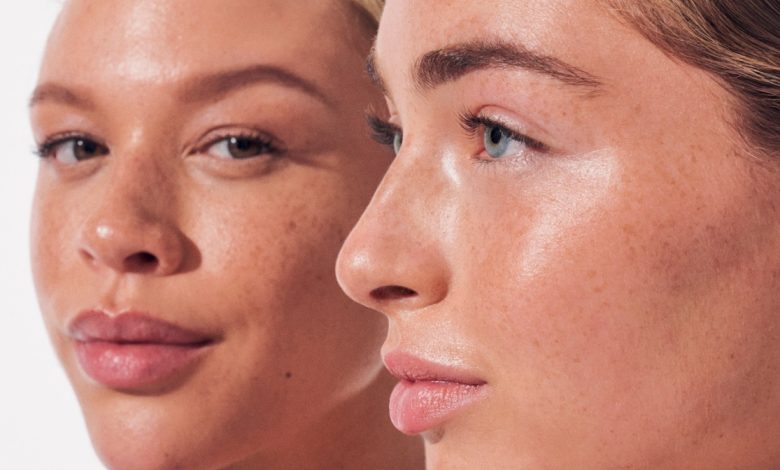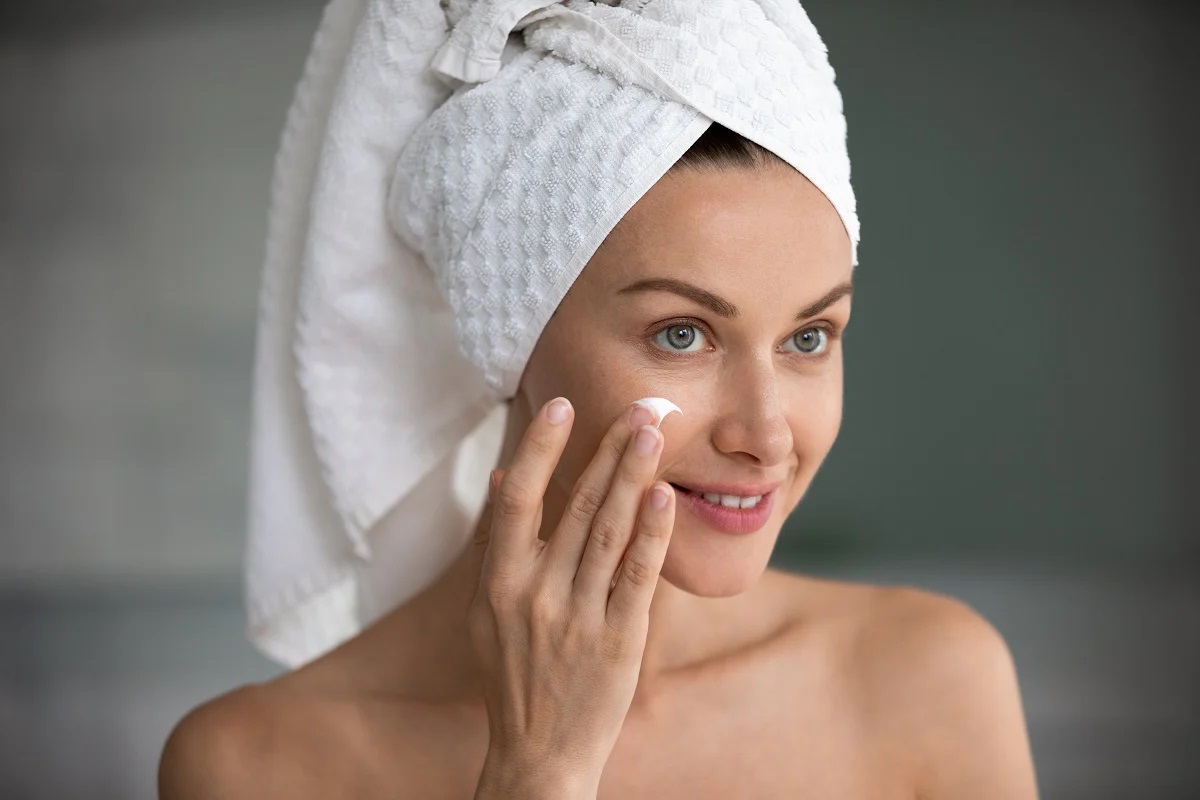Hydration vs. Moisturization: What Your Skin Really Needs

Hydration vs. Moisturization: Keeping your skin healthy and glowing isn’t just about slathering on any cream you find.
Hydration vs. Moisturization, The key to maintaining soft, supple skin lies in understanding the difference between hydration and moisturization. While they might seem similar, they serve different functions—and using the right one for your skin type can make all the difference.
Hydration vs. Moisture: Understanding The Difference

Hydration vs. Moisturization, When it comes to skincare, the terms hydration and moisture are often used interchangeably, but they actually refer to different things. Simply put:
Hydration is all about water in the skin.
Moisture is all about oil in the skin.
Hydration vs. Moisturization, Skincare products use various ingredients to either hydrate or moisturize the skin, and some ingredients, like humectants, can do both. Let’s break it down.
What Does Hydration Mean?
Hydration vs. Moisturization, Hydration involves increasing the skin’s water content. Humectants are the key players here—they attract moisture from the air or deeper skin layers and bring it to the surface. This helps keep skin plump, smooth, and healthy-looking.
Common Hydrating Ingredients:
Hyaluronic acid – Holds up to 1,000 times its weight in water
Glycerin – A powerful water-attracting ingredient
Honey – A natural humectant with antibacterial properties
Urea – Helps bind moisture to the skin
Sorbitol – Draws water to the outer layer of the skin
Alpha hydroxy acids (AHAs) – Gently exfoliate while hydrating
What Does Moisture Mean?
Hydration vs. Moisturization, Moisturizers help seal hydration into the skin by preventing water loss. These ingredients typically contain oils and lipids that create a protective barrier, keeping skin soft and smooth
Types Of Moisturizing Ingredients:
Occlusive – Form a physical barrier to prevent moisture loss (e.g., petrolatum, beeswax, lanolin, mineral oil).
Emollients – Improve skin texture and reinforce the skin barrier (e.g., fatty acids, fatty alcohols).
Protein rejuvenators – Help replenish proteins that support skin structure (e.g., collagen, keratin, and elastin).
Do You Need Hydration, Moisture, Or Both?
Hydration vs. Moisturization, Since the line between hydration and moisture can sometimes be blurry, it’s important to understand your skin’s needs:
If your skin feels tight, rough, or dull, it likely needs more hydration (water-based ingredients).
If your skin feels rough, flaky, or irritated, it likely needs more moisture (oil-based ingredients).
If you experience both, using a combination of hydrators and moisturizers can give you the best results.
Hydrator vs. Moisturizer: What’s The Difference?
The terms “hydrator” and “moisturizer” often get used interchangeably, but they’re not exactly the same.
Moisturizers create a barrier on the skin’s surface to lock in moisture and prevent water loss.
Hydrators attract and retain water in the skin to keep it plump and hydrated.
According to cosmetic chemist Perry Romanowski, “Hydrator” and “moisturizer” are largely marketing terms, but brands typically use them to indicate how the product delivers moisture to the skin.
Does Water Alone Hydrate Your Skin?

Hydration vs. Moisturization, You might think splashing water on your face is enough to keep your skin hydrated, but that’s not the case. Water evaporates quickly, often taking your skin’s natural oils with it, leaving your face drier than before.
That’s where hydrators and moisturizers come in:
Moisturizers contain occlusives (like petrolatum or plant oils) and emollients to form a protective seal over the skin.
Hydrators contain humectants (like hyaluronic acid and glycerin) that draw water into the skin and hold it there.
Choosing the right one depends on your skin’s specific needs.
How To Choose The Right Product For Your Skin Type
For Dry Skin: Use a Rich Moisturizer
If your skin is naturally dry and tends to flake or feel tight, it struggles to retain moisture. A thick, emollient moisturizer will help lock in hydration and nourish your skin.
Best ingredients: Petrolatum, shea butter, coconut oil, jojoba oil
For Dehydrated Skin: Go for a Hydrating Serum
If your skin looks dull and feels tight but still produces oil, it may be dehydrated rather than dry. A hydrating serum with hyaluronic acid will help restore lost moisture.
Best ingredients: Hyaluronic acid, aloe vera, honey
For Oily Skin: Try Lightweight, Water-Based Hydrators
Hydration vs. Moisturization, Oily skin can still be dehydrated, which often leads to even more oil production. A lightweight, water-based hydrator will balance hydration without clogging pores.
Best ingredients: Hyaluronic acid, glycerin, water-based formulas
Hydration Starts from Within
Skincare products can only do so much—what you consume matters, too!
Drink plenty of water (aim for half your body weight in ounces daily)
Eat hydrating foods like watermelon, cucumber, and strawberries
Avoid excessive caffeine and alcohol, which can dehydrate your skin
How Much Hydration Does Your Skin Really Need?
Hydration vs. Moisturization, Maintaining proper hydration is essential for healthy, glowing skin. But how much water does your skin actually need?
What Science Says About Hydration
Hydration vs. Moisturization, A 2015 study examined the impact of daily water intake from food and drinks on skin health. Researchers analyzed 49 healthy women, comparing those who consumed more water with those who consumed less.
Hydration vs. Moisturization, The findings showed that increasing water intake improved hydration in the epidermis (the skin’s outermost layer), positively affecting skin physiology. However, the study didn’t specify an exact amount of water needed for optimal skin hydration.
An earlier 2010 study suggested general daily water intake recommendations:
Men: 3,000 ml (101 oz or about 12 cups)
Women: 2,200 ml (74 oz or about 9 cups)
While drinking enough water is crucial, proper skincare products also play a major role in keeping the skin hydrated.
Choosing The Right Skincare Products

Hydration vs. Moisturization, Many people struggle to determine whether their skin needs more hydration (water) or more moisture (oil). Understanding skincare ingredients can also be overwhelming.
The American Academy of Dermatology Association (AADA) suggests selecting products based on skin type:
Oily – Look for lightweight, non-comedogenic products.
Normal – A balanced routine with hydrating and moisturizing ingredients works best.
Dry – Rich, emollient-based products help seal in moisture.
Combination – Use targeted products for different areas of the face.
Sensitive – Hypoallergenic, fragrance-free products help prevent irritation.
For aging skin, the AADA recommends hypoallergenic products that don’t trigger allergies and non-comedogenic formulas to prevent clogged pores.
How To Keep Skin Hydrated And Healthy
Hydration vs. Moisturization, Hydration goes beyond skincare products. The AADA suggests these simple habits to support healthy, hydrated skin:
Everyday Skincare Tips
Apply sunscreen daily – Protects against sun damage and premature aging.
Check for skin changes – Early detection of skin cancer increases treatment success.
Avoid smoking – Smoking speeds up aging and damages skin elasticity.
Use gentle cleansing methods – Skip harsh scrubs and opt for mild, fragrance-free cleansers.
Wash your face regularly – Cleanse in the morning, before bed, and after sweating to remove bacteria and pollutants.
Manage stress – Stress can trigger skin issues like acne and eczema, so relaxation techniques can help.
Extra Care For Dry Skin
If you struggle with dry skin, follow these additional steps:
Use warm (not hot) water when bathing or showering.
Keep showers/baths short—no more than 5 minutes.
Choose fragrance-free and gentle cleansers.
Apply moisturizer immediately after washing to lock in hydration.
Look for moisturizers with:
Shea butter
Glycerin
Jojoba oil
Lanolin
Petrolatum
Hyaluronic acid
Hydration vs. Moisturization, By combining proper hydration, skincare, and healthy lifestyle habits, you can maintain soft, nourished, and radiant skin every day!
Final Thought: Do You Need Both A Hydrator And A Moisturizer?
Hydration vs. Moisturization, Most skincare products contain both hydrating and moisturizing ingredients, so you may not need to choose. However, understanding what your skin truly needs can help you select the best formula for optimal results.
Hydration vs. Moisturization, When in doubt, check the ingredients—not just the label. And remember, great skin isn’t just about what you put on your face but also how you care for your body overall!
Also Read:
What Can Your Skin Absorb? Understanding The Science Behind Skincare Ingredients
7 Best And Easy Strategies To Keep Your Skin Hydrated Year-Round For All Skin Types
Neck Skin Sagging: Causes Of Accelerated Sagging In Neck Skin Versus Facial Skin




